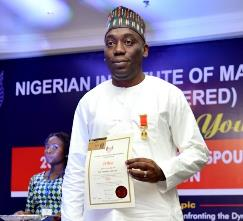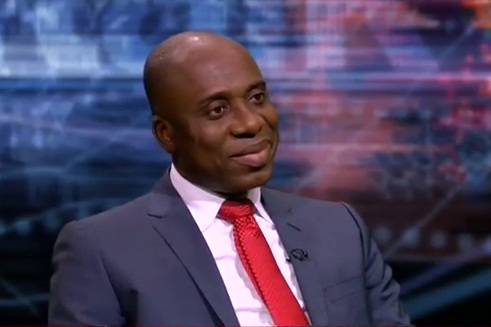John Iwori
Heads of top personnel in government agencies under the supervision of the Federal Ministry of Transportation are expected to roll following the revelations and findings being unearth at the on-going investigation into alleged malpractices in the maritimeindustry.by the National Assembly.
The hammer is also expected to fall on top officials of the Federal Ministry of Transportation as well as private companies doing business with the parasatals under its watch.
Besides the Nigerian Ports Authority (NPA), Maritime Academy of Nigeria (MAN), Nigerian Institute of Transport Technology (NITT), and the Nigerian Maritime Administration and Safety Agency (NIMASA), Council for the Regulation of Freight Forwarding in Nigeria (CRFFN) and the Nigerian Shippers Council (NSC) are also under the supervision of the ministry.
Others are the Nigerian Maritime University (NMU), and the National Inland Waterways Authority (NIWA) which has its corporate headquarters in the Kogi State capital, Lokoja.
Already mind bogging revelations have started filtering in from the first day of the investigative hearing which kicked off last Monday in the National Assembly.
The investigative hearing is being organised in Abuja by the House of Representatives Committee on Ports, Harbours and Waterways. This was sequel to several motions calling for an investigation into alleged malpractices in the maritime industry.
When Maritime Bits visited Dicpharima House, the corporate headquarters of the Federal Ministry of Transportation in Abuja, not a few staff were seen in small groups discussing in hush tones the outcome of the investigative hearing.
The situation was not different at NPA House, Marina, the corporate headquarters of NPA in the commercial nerve centre of the country.
Speaking at the opening ceremony of the investigative hearing, the Speaker of the House of Representatives, Hon. Yakubu Dogara noted that the allegations raised were weighty, with potential to seriously affect the economy.
Dogara emphasised the importance of an effective maritime sector to the Federal Government’s diversification drive, just as he expressed dismay that the Nigerian maritime industry still seemed to be struggling in spite of efforts aimed at repositioning it.
While commending the executive arm for improved service delivery and enhanced contribution to economic growth, he expressed regret that despite these efforts, the maritime industry is yet to attain the desired and expected status of becoming the hub for international freight and trade in West Africa Sub-Region.
“In this regard, it has been observed that over the years, the Nigerian maritime industry has failed to attract the required local and foreign investment inflow that is proportionate to its contribution to both the Nigerian and West African economy, despite its great potential and enormous investment opportunities”, Dogara said.
The speaker described as unacceptable a situation whereby ports in other West African countries deliver better and more efficient services than the ones situated in Nigeria.
His words: “According to the National Bureau of Statistics in March, Nigeria’s ports dropped down the global ratings basically due to bad infrastructure. Interestingly, major competitors in the West African region, such as the Port of Lome in Togo, Port of Dakar in Senegal, and the Port of Cotonou in Benin Republic, all deliver better efficient services than the Nigerian Ports. This is really not acceptable.
“Some of the problems that have been identified as the reasons the Nigerian Ports are performing so poorly include bad infrastructure, high cost of doing business and low draught at a lot of our major waterways. It is our hope that the legislative exercise being carried out through this committee will proffer lasting solutions to these problems,” he said.
Dogara stressed the need to dredge the ports outside Lagos to increase traffic and in turn, boost economic productivity in other parts of the country.
Continuing, he said: “It has also been pointed out by stakeholders that dredging our port channels will increase traffic to our ports and invariably increase economic productivity. For instance, if we have cargoes going up north to places such as Kaduna, Kano and Maiduguri, such cargoes would not need to go through Lagos, which is already so congested. But for this to happen, the channels of other ports need to be dredged.
“Reports have it that the Lagos water channel is about 14.5 meters deep, while the Port Harcourt and Calabar channels are less than 10 meters deep, which limits their capacity to receive big cargo ships. This explains why there is so much congestion at the Lagos Port. If we must make the expected progress in our maritime sector, all available resources must be accountably and prudently managed to meet the various demands for improved infrastructure”.
The speaker also identified inefficient collection and accounting procedures, contract repetitions and payment of huge commissions to service providers compared to remittances into the Federation Account as other factors militating against efficient service delivery in the maritime sector.
The investigative hearing was necessitated by motions relating to guaranteed minimum tonnage in the contract signed between the Federal Government and private terminal operators, and abandonment of dredging projects among others.











